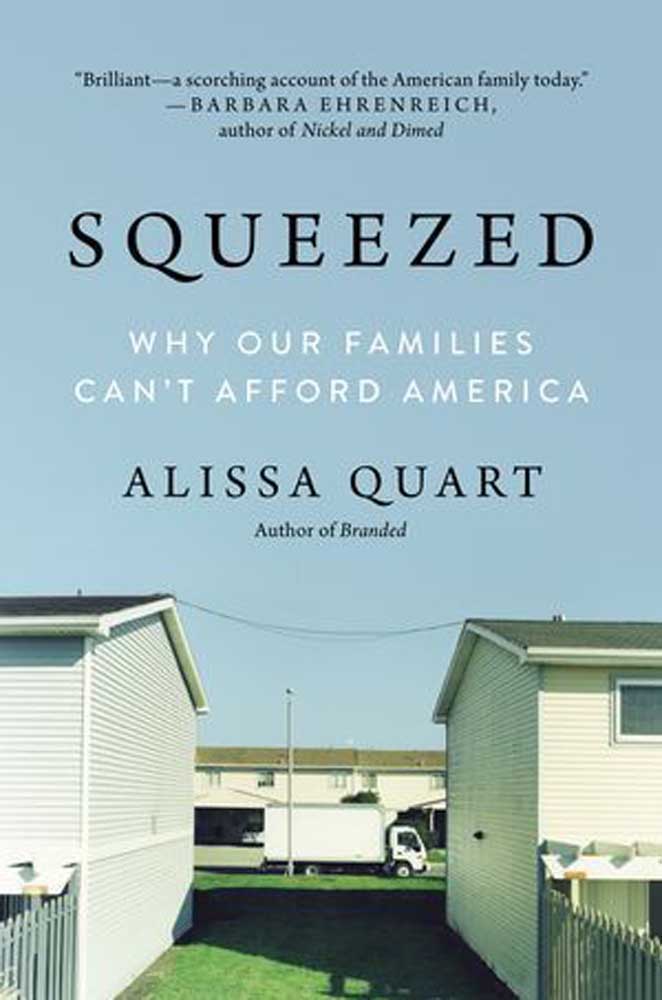Going for broke, the middle class goes broke
Published 12:00 am Sunday, July 1, 2018

- “Squeezed: Why Our Families Can’t Afford America,” by Alissa Quart(Harper Collins, 320 pages, $27.99)
It wasn’t long ago “middle class” suggested security, conformity and often complacency. The cohort was such a reliable feature of American life, it attracted political pandering and cultural ridicule.
“Squeezed: Why Our Families Can’t Afford America,” a timely new book by the journalist and poet Alissa Quart, arrives at a moment when members of the middle class are no longer a robust demographic but an embattled and shrinking population, struggling to hold on to their delicate perch.
The people she talks to believed their educations and backgrounds (most of them grew up in middle-class homes) would guarantee some financial stability; instead, their work is “inconstant or contingent,” and their incomes are stagnant or worse.
Quart describes her experience of slipping into the “falling middle-class vortex” seven years ago, when she and her husband were freelance writers facing child care costs and hospital bills.
Her book succeeds and suffers because she includes herself in the group she’s writing about.
As she puts it in her introduction, the concerns of her subjects “were not abstract to me.” Quart is a sympathetic listener, getting people to reveal not just the tenuousness of their economic situations but also the turbulence of their emotional lives. A chapter on middle-age job-seekers who once worked as computer programmers or newspaper reporters captures the fallout of a discriminatory job market, which tells older unemployed people to buck up and start over.
“I’ve tried to reinvent myself so many times,” an aeronautical-engineer-turned-website-designer-turned-personal-chef tells her. “To be honest, it hasn’t worked.”
The woman is in her 50s, with two grown daughters and debt from culinary school.
One of the most unsettling threads in the book is how a collapsing middle class has prompted new industries, like for-profit colleges and gig-economy startups. She describes Uber’s efforts to sign up schoolteachers as drivers; in Oregon, the company notifies riders when their driver is an “UberEducator,” bragging 3 percent of each fare goes to the teacher’s classroom.
The people in Quart’s book are anxious, and they know vulnerability. Precarity, Quart says, can turn into solidarity.
Only, that is, if people stop blaming themselves first. Quart repeatedly indicts a system that allows comfort and security to become perks for the extremely rich
“The mantra of this book,” she writes in the opening, is “It’s not your fault.” Based on the diligent people she meets, it’s hard to disagree.
This reassurance feels simplistic. It casts financial hardship in terms of deserving andundeserving. A humane system would make room for error.
Quart knows this. But aside from sharp points about how workers are expected to “deny their biology,” the analysis is thin and unmemorable. Quart can be distracting, telling us how much iced coffee she drinks and cracking flat jokes.
Her reporting is reason enough to read “Squeezed,” especially as she discusses how parents cope financially with caring for children.
We could use her guidance navigating our country’s definition of parenthood.








